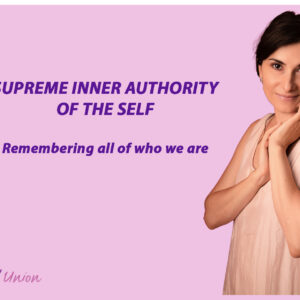Soulmate relationships: communication tips for your soul connection

Communication for soulmate relationships
When it comes about 2, things always start from 1. From the way each of the two gets involved in the relationship, gives or retracts their affection.
From their own responsibility for their own wounds or blind spots, for their own emotions and feelings.
But most of the times, on the road from 1 to 2 and then back to 1, we wander in the same labyrinth that is sometimes dark. And sometimes irresistibly beautiful: the labyrinth of couple cohabitation and communication.
A profound and entangled domain in which principles like drawing boundaries, delimiting personal space and intimacy, the balance between giving and receiving, become essential in soulmate relationships.
This is specifically why I thought to offer you in the following text four principles that I consider essential guidelines in couple relationship and in soulmate relationships:
1.Saying what you want emotionally and not assuming that the other already has to know your hidden and unshared wishes.
Saying: “You should have known I wanted this!” can sometimes be an unfair accusation to the one in front of us.
Most of the times we do not have any clue about what the one close to us really feels and wants. So clearly expressing what we want seems to be necessary. Many times, we rely on assumptions, hunches and exaggerations in our soulmate relationships. Many of them are far from being true.
But what happens when we do not have the maturity to know what is good for us and what not? What we want and what we don’t want? What need we really have?
Maybe then is the moment to make silence around us. To give ourselves the space that we need for self-clarification. Not to put the fulfilment of the needs we ourselves don’t know how to relate to, on our partner’s shoulders.
2. Not taking personally general discussion, in which the partner exposes their own emotional un-fulfilment.
This scenario can happen for instance when the woman exposes to the man, with a winy voice that is a sign she wants to be spoiled, her complaints for that day. How much the boss upset her. How little she gets on with her office colleague. Or how annoying is that teenager that stepped on her foot in the subway train.
What the man understands most of the times can be something like: “I told you to find me a job somewhere else, because I cannot stand to work here anymore and I told you before to buy me a car so I don’t have to take the subway anymore!!!”
Because one of them says something and the other understands something else, it can escalate to painful scenarios and many times useless.
Would it be useful to wonder: what process happened between what I said and what the other heard?
What interfered in the way in the communication process? In this case is it about a feeling of guilt that came from the conviction that we are not good enough for the other?
3. Clear boundaries
Any couple who lives together every day is susceptible to reach the phase in which it is impossible to recognise how far one’s inner problems can go and where the other’s problems start.
Most of the times, it is painfully hard to make a distinction. So, when we receive a reproach from our partner like: “You don’t love me enough!”, we often don’t know where the line is between our personal contribution to that state and what belongs exclusively to our partner.
Maybe we didn’t give enough, maybe we didn’t offer enough attention, maybe we didn’t manage to convey our love, maybe, maybe, maybe…) or maybe is just the hurt inner child of the partner that feels unloved. And maybe because they cannot own the pain of feeling unloved, they project it unto the closest person…
I think the healthy differentiation must be done in a way that says:
“We are two mature people with wounds, wishes and personal needs. We can support each other as long as you don’t burden me with wounds and needs that are not mine.”
But this differentiation from the partner cannot happen until after we make the differentiation, the owning and containment of one’s own wounds and needs. It is that thing without which we cannot have a healthy, mature and responsible soulmate relationships with any partner on this globe.
4. Understanding and feeling the fundamental nature of the two energies: the feminine and the masculine.
A lot of the misunderstanding in soulmate relationships comes from a poor assimilation of the two principles. In my vision, the woman is energy in its pure form. It can transform in any moment, depending on the state or exterior and interior conditions, both in hate, revenge, suffering, pain or in love, kindness, acceptance, fulfilment.
Precisely because feminine energy can be so devastating through its intensity, it has a great need of firm boundaries and appropriate containment from the masculine energy.
Like a recipient in which water gathers, masculine has the role to frame, guide and restructure the flowing and flexible feminine energy. The recipient must be firm enough so that water can take its shape and water has to know how to adapt to the recipient’s shape.
In the same time, feminine energy has to temper its destructive force when masculine energy wants to fulfil the purpose of surrounding it with its protection.
Problems occur when water wants to break the recipient because it doesn’t feel safe inside it or the recipient constraints water too much, in its attempt to offer her a shape no matter what.
So, my dear women, in order to allow the masculine to be masculine, we need to own our femininity that is flowing, harmonious, translucent.
And my dear men, in order to allow the feminine to be feminine, owning one’s masculinity – the firm, stable, containing and surrounding male principle – is required. And of course, first of all we should do this inside of us, with the inner male and inner female.









